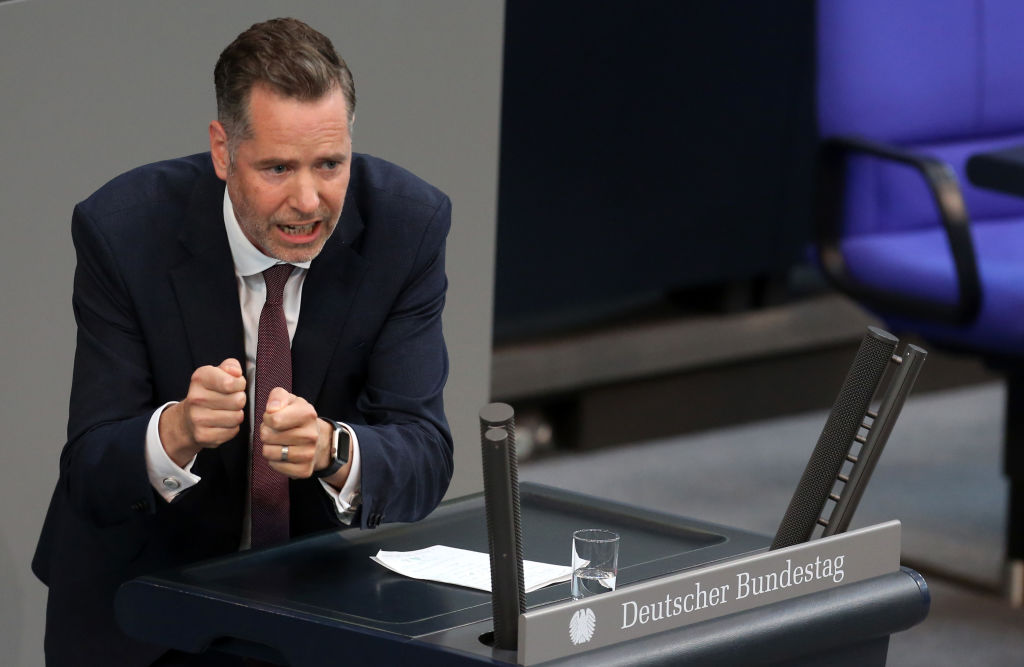German interior minister Nancy Faeser has expressed interest in how Italy aims to more asylum application procedures in Albania.
Faeser said the Italian plans to outsource parts of its asylum-claim procedures to Albania were an “interesting model”, while at the same time rejecting the British Rwanda migrant relocation plans.
Speaking to German newspaper Stern on May 27, Faeser said she was “looking forward to what Italy is doing together with Albania”.
“Italy wants to handle asylum procedures in Albania itself. This is an interesting model that I am discussing with my Italian counterpart,” she said.
She further noted that the German Government was examining how asylum procedures in third countries could be legally possible and was looking for potential partner countries to take part.
The Social Democrat said that the government was considering “which State would be willing to take in refugees in larger numbers, which country would ensure the safety of these people and also repatriate them if they were rejected — all while respecting human rights”.
Faeser said she doubted “whether asylum procedures could take place on a larger scale in a small country like Rwanda”.
“How many refugees has Rwanda taken in from other countries so far? Great Britain is having a hard time here – to put it mildly.”
She indicated it was more important to work in line with the recently approved European Union Migrant Pact and to concentrate on better protection of the bloc’s external borders alongside faster asylum-claim procedures.
“In this way, we are thwarting the smuggling routes and stopping their brutal business,” Faeser said.
From October to mid-April this year, more than 700 smugglers were arrested by German authorities as a result of additional checks, according to news outlet Deutsche Welle.
Faeser imposed temporary fixed controls at the German border with Poland, the Czech Republic and Switzerland in mid-October in reaction to a dramatic rise in the number of migrants, while long-time existing controls in Austria remained.
These border controls were due to remain in place until the middle of June but Faeser has already declared that they will be extended to all German borders due to the UEFA Euro 2024 football competition starting on June 14.
The recent EU Asylum Pact standardises procedures at the EU’s external borders and migrants with perceived low chances of being accepted will be deported directly from border camps, including families with children.
Italy is to pay to send migrants to two facilities in Albania under a newly struck deal that has surprised both EU officials and many Albanians. https://t.co/2toO5300e6
— Brussels Signal (@brusselssignal) November 7, 2023
Despite media linking the UK’s Rwanda plan and Italy’s Albania initiative, there are some notable differences.
While both aim to outsource parts of their asylum procedures to third countries, the most crucial difference is that the Albania plan will see migrants allowed to go to Italy eventually. The British initiative stipulates that successful asylum-seekers would have to stay in Rwanda.
Barring “exceptional” situations when there is a possibility that they may suffer “irreversible” harm, the UK’s immigration laws effectively prevent individuals who enter the country illegally from requesting refuge in the country.
Italy also aims to take responsibility for the detention centres in Albania and to administer them fully, while the UK plans to outsource everything to Rwanda.
Human rights organisations oppose both models. Amnesty International said the Albania one threatened individuals’ rights to life, the safety of people in distress at sea and the right to liberty and asylum.
The Rwanda plan faces legal problems, with it being challenged by several groups in the British courts. In November 2023, the UK Supreme Court ruled unanimously that the Rwanda scheme was unlawful.
By contrast, Italy’s Albania scheme has already been approved by the Italian courts.
However, Albanian Prime Minister Edi Rama said the migrant deal with Italy is a “one-off, 100 per cent a one-off,” claiming the deal was made because there is a “deeply rooted friendship” between Albania and Italy. He also connected it with future EU membership for his country.
European countries wanting to set up similar projects like the Albanian-Italian cooperation, would thus have to convince other countries.
The European People’s Party is currently campaigning on plans to work with third countries to deal with mass migration.





